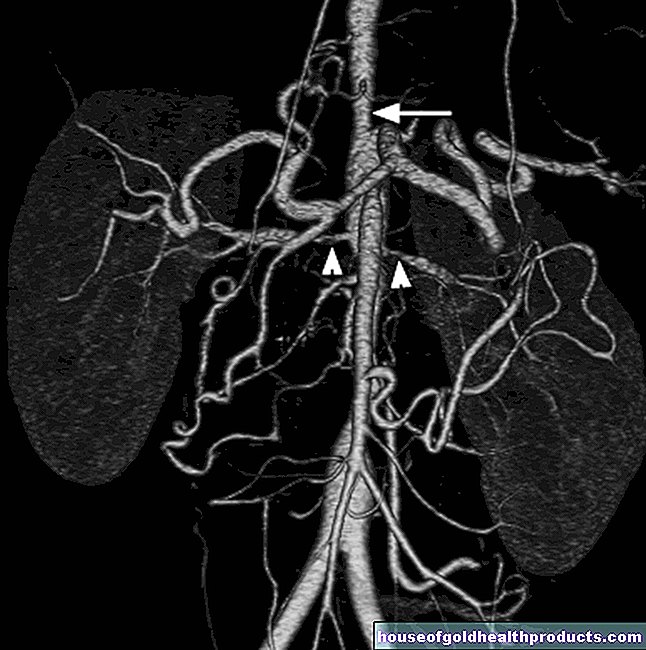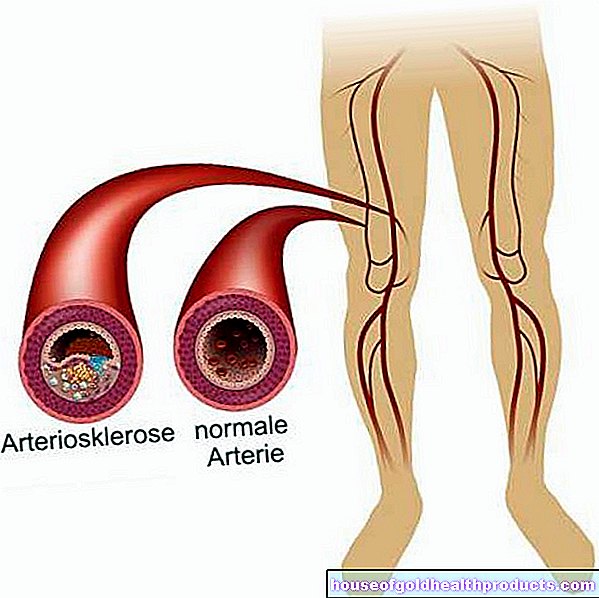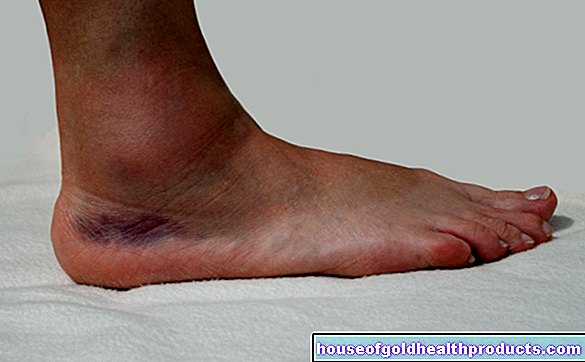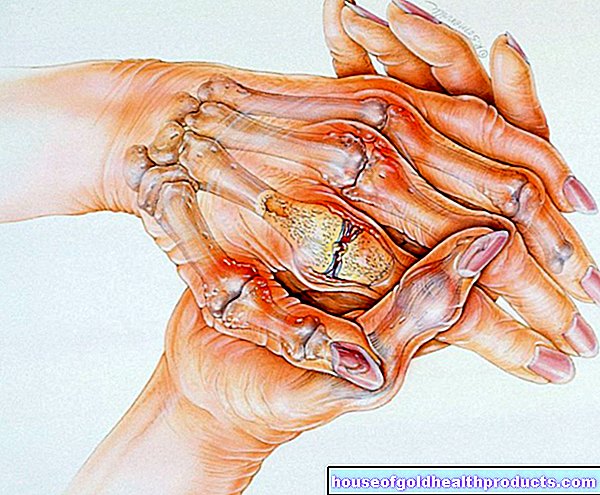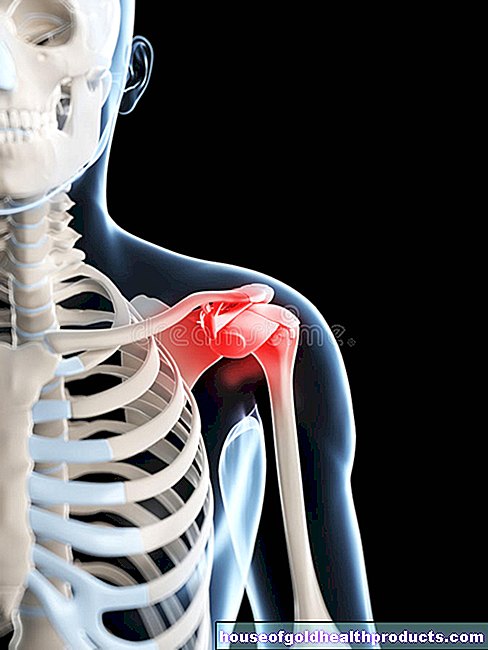Periodontal disease promotes cancer
Larissa Melville completed her traineeship in the editorial team of . After studying biology at Ludwig Maximilians University and the Technical University of Munich, she first got to know digital media online at Focus and then decided to learn medical journalism from scratch.
More about the experts All content is checked by medical journalists.Bleeding gums, reddened gums, exposed tooth necks, and bad breath are just some of the symptoms of periodontal disease. But things can get worse: With the annoying bacterial inflammation, the risk of other serious diseases such as rheumatism or cardiovascular diseases also increases. But does periodontitis also favor the development of cancer?
Chronic inflammation is always a problem for the body. What nature has come up with to protect against disease will damage if it remains activated over the long term. Inflammatory processes promote, among other things, that vessels calcify, which increases the risk of heart attacks and strokes. And diabetes is also favored.
Now researchers led by Jean Wactawski-Wende from the State University of New York in Buffalo have investigated whether cancer is also increasing due to gum inflammation. They analyzed the data of over 65,000 women between the ages of 54 and 86 who had previously provided information about their dental health using a questionnaire. The study period was eight years.
Esophageal cancer is much more common
The result: women who had suffered from periodontal disease in the past had a 14 percent higher risk of developing cancer than women who had never had an inflamed tooth bed. The association between periodontal disease and esophageal cancer was most evident. Affected women with periodontal disease got it more than three times more often. Lung cancer, gallbladder cancer, black skin cancer (melanoma) and breast cancer were also associated with a significantly higher risk.
In addition, the researchers found that women who had not only suffered from periodontal disease, but also smoked, were particularly affected by certain types of cancer - including breast cancer, lung cancer and gallbladder cancer. Melanoma, on the other hand, occurred mainly in test subjects who had periodontitis but did not smoke.
Mechanisms still unclear
The exact biological mechanisms that explain the connection between inflamed gums and cancer are not yet fully understood. It is conceivable that the bacteria and their excretion products, including toxins from the saliva, dental plaque and diseased tissue, get into the bloodstream, reach other regions of the body and promote cancer there. This approach would also explain why esophageal cancer occurs more frequently. Wactawski-Wende says: "The esophagus is close to the oral cavity. This means that inflammatory disease triggers may have easier access, infect the lining of the esophagus and thus increase the risk of cancer in this location."
Prevent inflammation
So it is important to prevent periodontal disease! The following tips will help keep your tooth bed healthy:
Careful oral hygiene is essential. Brush your teeth at least twice a day. In order not to attack the tooth enamel, wait at least half an hour after eating. Change your toothbrush every six to eight weeks. As the spaces between the teeth are particularly vulnerable, it is important to use dental floss or a small tooth space brush. You should also go to the dentist for a check-up every six months, because the symptoms of periodontal disease often only show up when it has progressed. Regular professional tooth cleaning, in which the bacterial plaque is thoroughly removed, is also useful.
Smoking damages the gums
Not only does poor oral hygiene increase the risk of periodontal disease, but also smoking. Because the nicotine and other substances in tobacco smoke constrict the vessels. Then the gum becomes less well supplied with blood. Then fewer immune cells get into the tooth bed and can no longer keep the bacteria in check.
Quickly to the dentist
If you already have periodontal disease, contact your dentist and start treatment as soon as possible. The dentist removes the bacterial biofilm in the gingival pockets and any deposits on the tooth necks and root surfaces - sometimes with ultrasound or laser. If the inflammation is already well advanced, the doctor opens the gum pockets with a small incision, cleans the tooth and removes diseased tissue. Specific antibiotics can also help with aggressive periodontitis.
Esophageal cancer is tricky. It only causes symptoms such as swallowing problems in the late stages and is therefore often overlooked for a long time. That reduces the chances of survival enormously. Every year around 1,000 women and 4,000 men in Germany develop it. Overeating, alcohol and nicotine lead to the degeneration of cells in the esophagus. Because they promote reflux disease, in which acidic gastric juice gets into the esophagus and damages the mucous membrane there.
Tags: diet tcm hospital



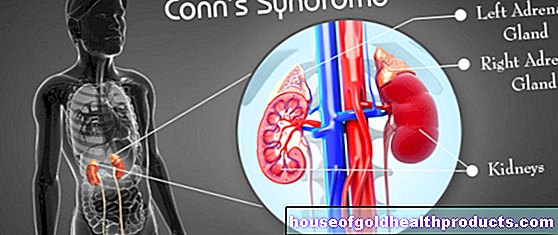






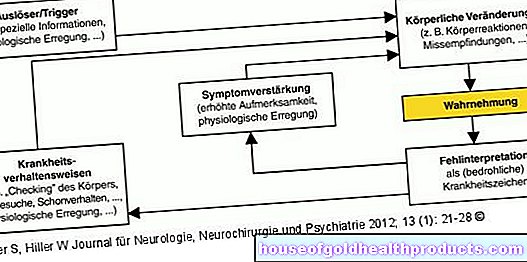
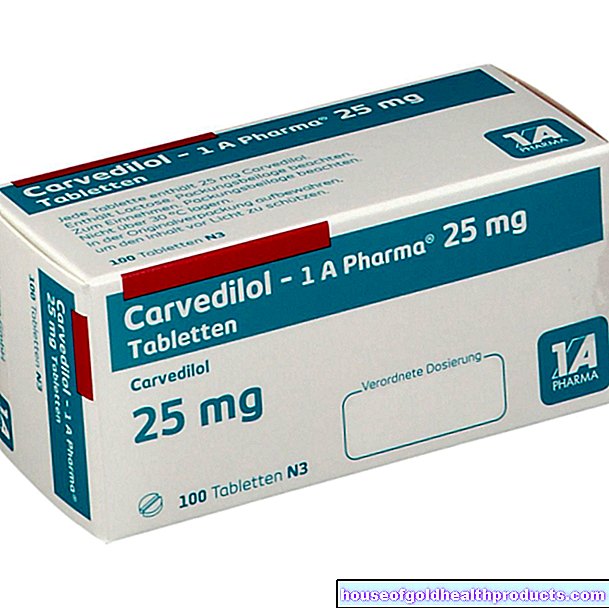

.jpg)

